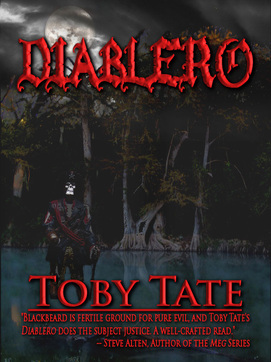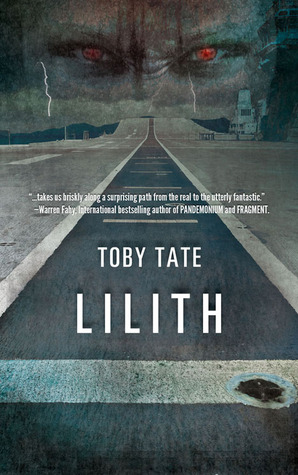Characters don’t even really have to be people. Seriously,
they can be machines, aliens, animals, plants, whatever. But if they don’t
drive the story, then they aren’t doing their job, and they might as well not
even be there.
I’ve read science fiction stories and thrillers where things
moved along at a good pace from point A to point B, but because the characters
were one-dimensional, the trip was forgettable.
I base almost all my characters on real people, either
people that I know or have met somewhere along the way. One of the characters
in my supernatural thriller, LILITH, was an aircraft carrier called the USS
Gerald R. Ford. That’s right—it was a ship. Hey, they don’t call ships “she”
for nothing. Since the Ford was not yet commissioned at the time, I based it on
the USS Harry S. Truman, where I had spent several days at sea. Believe me,
those ships have personalities all their own, and I tried to bring that across
in LILITH by describing things I had experienced while aboard the Truman.
The character of Hunter Singleton, one of the main
protagonists of my stories, is based mainly on me, but also on other people I
have known. He has a back story, he has a distinct personality, he has
interests, dislikes, quirks, certain physical qualities—he even speaks a
certain way. You can always tell when Hunter is talking, because he’s a smart
ass. Kind of like me. He’s adopted, half Cherokee Indian and half white. He’s a
reporter for a national news agency. He knows Kung Fu and doesn’t mind using it
when necessary. And he’s usually up to his eyeballs in trouble.
Lisa Singleton, Hunter’s wife, also has certain physical
characteristics and personality traits that distinguish her from other female
characters. For instance, she’s a park ranger and a black belt in Wing Chun
Kung Fu, which she taught to her husband. Her father is Chinese and her mother
African American. She’s quite beautiful, like her mother, and small, but also
pretty handy with her fists as well as with a gun. If you piss her off, she
will take you down.
Lilith, the main antagonist, is more of a conglomeration of
different people. I tried to make her evil, but also gave her some faults and
frailties, and a back story that will make readers want to sympathize as well
as be repulsed. Awesome combination!
There’s a back story with Hunter and Lisa as a couple, and I
plan on getting more deeply into their personal stories as they progress
through each adventure. The next book to feature them, PRIMORDIAL, is still in
the writing stage.
Characters that are integral to the story should have traits
that set them apart from other characters—physical traits, quirks, flaws,
whatever. They should all speak with a different voice, as well, though that is
sometimes hard to do. Characters who I know will only be in one scene I don’t
spend as much time on, because they won’t be around long enough for anyone to
really care. They’re just there to help move the plot along.
I also like to give flaws to my characters, because real
people have flaws. For instance, Hunter has an inordinate fear of flying. As do
I. I do not like airplanes, or even tall ladders.
In my latest book, GOD PARTICLE, my protagonist is a
16-year-old girl. Not being a 16-year-old girl myself, I had to draw from
people I know, like my own wife and daughter, for instance, who helped me
immensely with the character. Chloe is Chinese, adopted as a baby by a loving Swiss/American
family. Hence the last name ‘Johansson.’ Not too many Chinese people have the
name ‘Johansson.’
Chloe is also extremely intelligent, already a freshman
engineering student at MIT. But she is a little bit spoiled. And selfish. And
maybe a little hard headed.
Characters also need some type of friction within the story,
something to overcome that will make them grow and reach beyond their own
self-imposed boundaries. Just like in real life. Chloe nearly becomes
overwhelmed by the events that take place in the GOD PARTICLE, but she has an amazing
inner strength that helps get her through. Plus, she prays a lot.
Lively characters are extremely important to my novels. The
stories are usually centered on the characters I create, and things move forward
because of their actions, or inaction. Without realistic, memorable
characters, the literary world can be a bland place, indeed.
For more information on my latest books, find me on the web
at www.tobytatestories.com.















